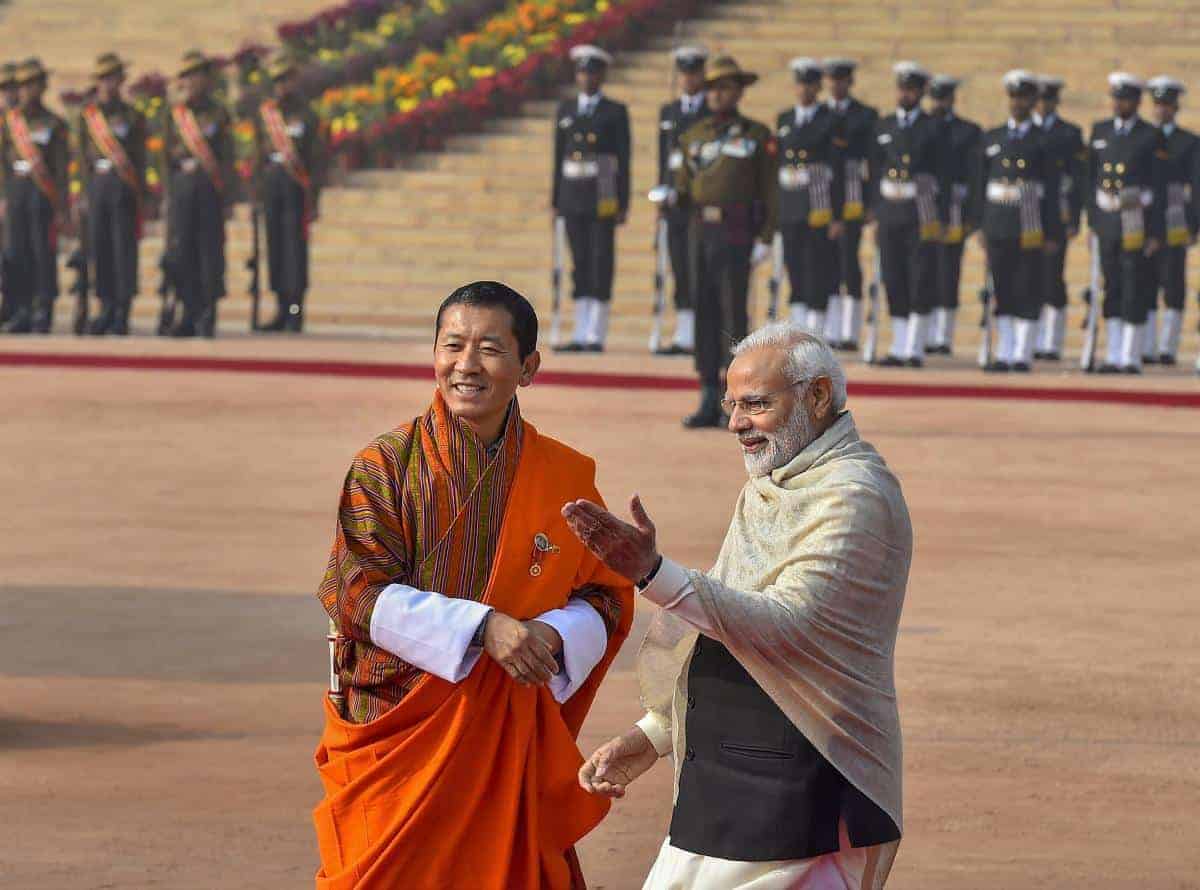NEW DELHI: After China, Pakistan and Nepal, now Bhutan has also started hassling India. Thimphu has stopped releasing channel water for irrigation along its border with India near Assam, affecting thousands of farmers in 25 villages of the region.
Since the pushback from India to the Chinese aggression in the Galwan Valley in Ladakh, where 20 Indian soldiers and unknown number of People’s Liberation Army (PLA) troops were killed in a violent faceoff on June 15, Beijing has been using its diplomatic heft through its regional allies to put pressure on New Delhi.
The Chinese Communist Party (CCP) regime has invested heavily in the countries neighboring India, resulting in unprecedented dependence of South Asia on China.
25 villages affected
Sources in Guwahati said that farmers staged a protest against the blocking of water which flows from a man-made irrigation channel ‘Dong’ for growing paddy. The channel has been used by farmers of Bhutan and India in the region since 1953.
The withholding of water by the Bhutanese government is affecting people of 25 villages, sources said. Thimpu has said that the flow of the irrigation water has been stopped as part of Bhutan’s efforts to combat the ongoing COVID-19 pandemic, which originated in China’s Wuhan city in Hubei province.
Bhutan has prohibited entry of foreign nationals. The Indian farmers, who use water from the channel, have been denied permission for being foreigners. Local sources said that the agitated farmers, however, argue that the water to the Dong can be channelised if all the international protocols to prevent COVID-19 are followed.
‘Border sealed due to COVID-19’
The editor of The Bhutanese newspaper in Thimpu, Tenzing Lamsang, however, disputed that Bhutan has stopped flow of any ‘irrigation water’ to India. In a series of tweets, he said, every year Bhutan allows Assamese farmers to come across and divert sections of a river in Bhutan into channels that irrigate few farms in Assam.
This year, the border is sealed for all foreigners due to COVID-19, he said, adding that even Bhutanese coming into Bhutan since March have to undergo a mandatory 21-day quarantine and tests before being released into the population.
“This is how we have prevented community transmission so far. Please don’t politicise this or draw non-existential inferences. Situation is not as heartless as it is being made out to be as local government on Bhutan side there had earlier agreed to maintain those water channels,” he tweeted.
However, in monsoon, sudden rainfall and floods also damage Bhutanese irrigation systems including the drinking water in Thimphu, Lamsang said.
The Centre and the state government are yet to react on the issue. While Islamabad has been hassling New Delhi with persistent ceasefire violations along the Line of Control and terror attacks in Jammu and Kashmir, Nepal has been cornered the government by laying claim to the Indian territory of Lipulekh, Kalapani and Limpiyadhura areas of Uttarakhand in its updated new map.

